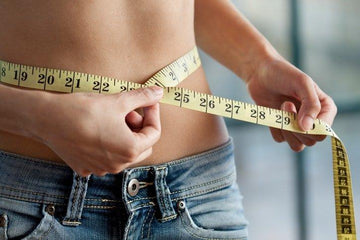

Weight loss question: Will exercising more enhance fat loss?
Table of Contents
Why exercising more will not enhance fat loss.
According to the newest research in the Journal of Current Biology, exercise alone without diet is not going to be enough to lose weight.
Most people think that to get in shape they need to just exercise harder. Ask most people what they need to do to lose weight, they will say that they need to exercise more. Current obesity prevention strategies recommend increasing daily physical activity, assuming that increased activity will lead to corresponding increases in total energy expenditure and prevent or reverse energy imbalance and weight gain. The predominant view assumes a dose-dependent response of physical activity on total energy expenditure (kcal/day), with each increment of physical activity leading to a corresponding increase in total energy expenditure. It makes sense that if your burn more calories in the gym and keep your diet the same, you will lose more fat. According to the newest research in the Journal of Current Biology, exercise alone without diet is not going to be enough to lose weight.
Researchers compared total energy expenditure, against physical activity, measured using accelerometry, for a large (332 participants) sample of adults living in five populations. What the researchers found was shocking, they found that the subjects in the upper range of physical activity (most exercise), total energy expenditure plateaued. In the data they collected, they saw a weak but measurable effect of physical activity on daily energy expenditure. This means that there was not a direct correlation between exercise and total energy expenditure. The researchers were quoted as saying, “The researchers say it’s time to stop assuming that more physical activity always means more calories.” This means that studies on energy expenditure suggest that increases in exercise, don’t come with a comparable increase in total daily calories burned. What interesting is that there are a number of ways your body will fight you to conserve energy when exercise levels are high, for example, during intense exercise, people exercise intensely in the gym will be more likely to sit instead of stand, or fidgeting less, but they may also include reductions in other, non-muscular metabolic activity. Another interesting finding, is that in response to increased physical activity, reducing energy expenditure on growth, somatic repair and basal metabolic rate. This is exactly what the researchers found, because the subjects in the upper range of physical activity, total energy expenditure plateaued, supporting a constrained total energy expenditure model.
Herman Pontzer, Ramon Durazo-Arvizu, Lara R. Dugas, Jacob Plange-Rhule, Pascal Bovet, Terrence E. Forrester, Estelle V. Lambert, Richard S. Cooper, Dale A. Schoeller, Amy Luke. Constrained Total Energy Expenditure and Metabolic Adaptation to Physical Activity in Adult Humans. Current Biology, 2016; DOI: 10.1016/j.cub.2015.12.046
Perrigo, G. and Bronson, F.H Foraging effort, food intake, fat deposition and puberty in female mice. Biol. Reprod. 1983; 29: 455–463
Bautista, L.M., Tinbergen, J., Wiersma, P., and Kacelnik, A. Optimal foraging and beyond: how starlings cope with changes in food availability. Am. Nat. 1998; 152: 543–561
Deerenberg, C., Overkamp, G.J.F., Visser, G.H., and Daan, S. J. Compensation in resting metabolism for experimentally increased activity. Comp. Physiol. B. 1998; 168: 507–512

















